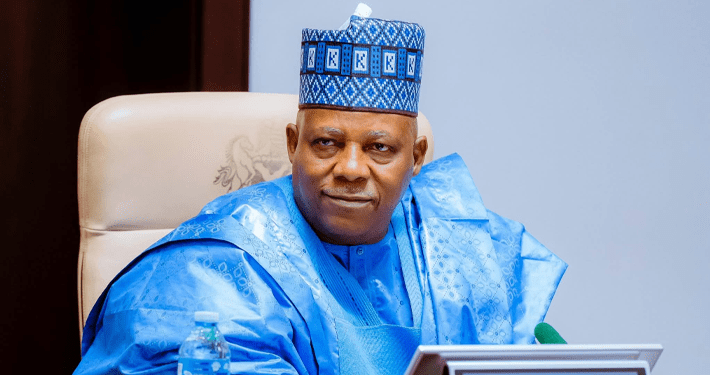Vice-President Kashim Shettima has described first lady Oluremi Tinubu as a symbol of how a properly empowered and supported girl child can blossom into a great leader.
Mr Shettima spoke during a meeting with a PLAN International delegation led by its director of programme, quality, and innovation, Helen Mfonobong Idiong, on a courtesy call at the Presidential Villa, Abuja.
He mentioned that when the first lady served in the Senate, she actively contributed to debates, particularly those related to girl’s education.
He assured the stakeholders and development partners of the commitment of President Bola Tinubu to promoting girl-child education across Nigeria.
The vice-president said, among other government interventions in girl-child education, the school feeding programme remained essential.
Mr Shettima, who invited a teenager, Joy Ogah, to take over the seat of the vice-president for a day and address the nation, stated that studies have shown that well-nourished children are well-formed.
“We will continue the engagement with PLAN International and see where the force and strength of government can be brought to bear on your solid advice on girl-child education,” he said. “In President Tinubu, you have an ally you can believe in and invest your trust in.”
Mr Shettima added, “I want to assure you, on behalf of President Bola Tinubu, that this government is gender-friendly. We believe in inclusivity. We cannot disenfranchise half of our population and expect to grow as a nation.”
The vice-president assured PLAN International that the administration’s doors were open for continuous engagement, adding, “The ladies on my team are the best people to engage.”
Speaking from the vice president’s seat, Ms Ogah expressed gratitude for the opportunity to represent millions of Nigerian girls.
She said that across Nigeria, 10.5 million children were out of school, with over 60 per cent of them being girls.
Ms Ogah emphasised that Nigerian girls can become leaders if the necessary interventions are implemented by relevant authorities and stakeholders.
She called on the government, policymakers, development partners, and the citizens to act strategically in advancing girl-child education.
(NAN)






